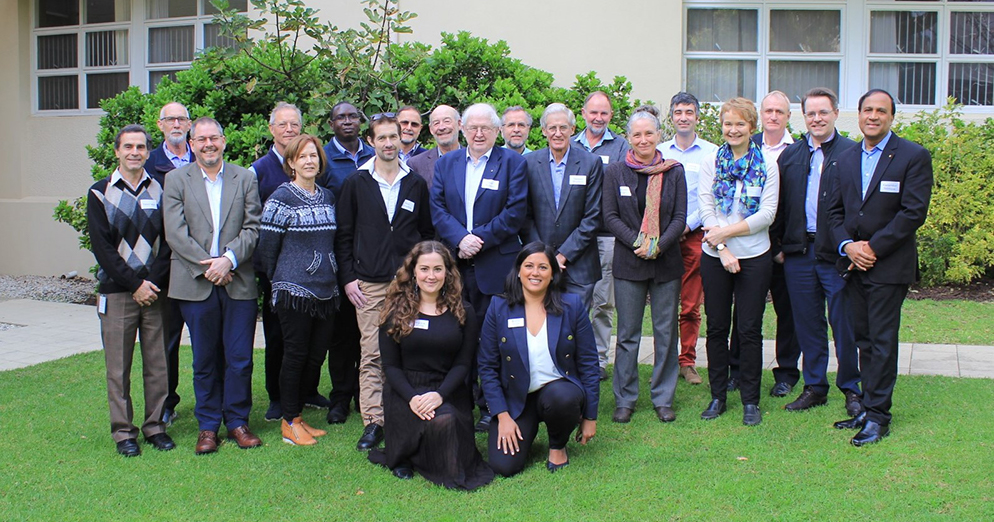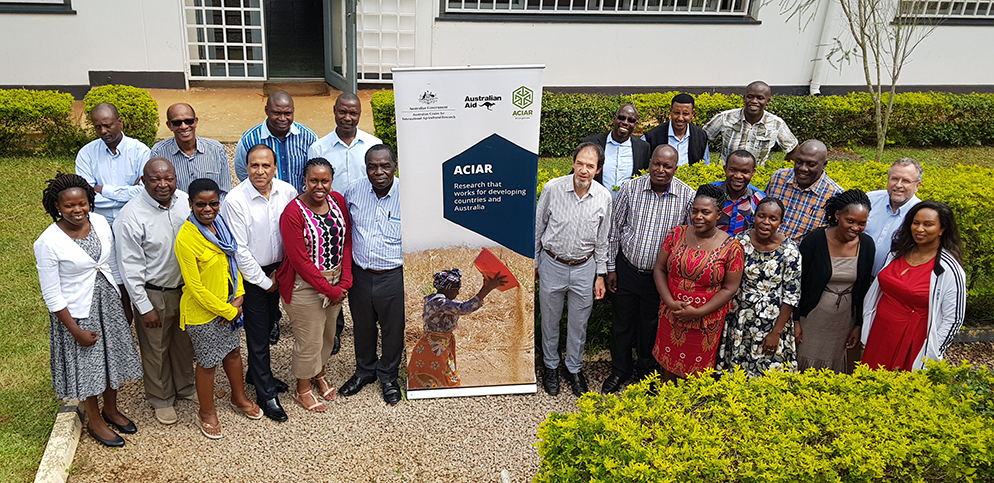The UWA Institute of Agriculture is finding solutions to some of the greatest challenges facing humanity.
How do we sustainably produce enough food in the midst of a global pandemic, rapidly rising population, economic shifts, changing climate, declining natural resources and more?
The Institute takes a leading role across industry, government and academia in planning and delivering a sustainable, profitable future for agriculture and food production in Western Australia.
It is committed to working with the State to meet its goal of doubling food production by 2030.
When it comes to the bigger picture, it partners with national and international collaborators to tackle the impacts of climate change and population growth in agriculture and food systems that threaten the security and prosperity of countries of the Indian Ocean Rim.
Leading innovations in dryland food production ecosystems
Agricultural Science at UWA is ranked 16th in the world and number one in Australia in the 2021 Academic Ranking of World Universities.
The Institute has played a significant role in achieving this global reputation by integrating research, education, training and communication in agriculture and related natural resource management areas across UWA.
It fosters innovation and strengthens connections with local and international research and teaching institutions and industry to provide research-based solutions to food and nutritional security, environmental sustainability and agribusiness.
The Institute received an overwhelmingly positive response to its Strategic Plan 2021-2025 [PDF].
The comprehensive document is guiding the Institute and its partners and collaborators to be future-focused, agile and sustainable into the future.
The Institute’s activities and initiatives are structured around six interdisciplinary themes, which facilitate research, partnerships, education and training, outreach and technology transfer.

Image: Key leaders from UWA and the agriculture industry at a workshop to finalise the Strategic Plan 2021-2025.
Connecting with agriculture industry, researchers and the public
More than 100 people attended The Institute’s 2021 Postgraduate Showcase on 2 June at Bayliss Lecture Theatre, during which seven top PhD students from three UWA schools in agriculture and related areas presented their research.
Registrations are open for the 15th annual 2021 Industry Forum at The University Club of Western Australia on 21 July, which will explore the timely topic ‘Future-proofing WA agriculture: Maximising opportunities for a resilient food production system’.
Registrations will open soon for industry leaders, farmers and the public to attend an Open Day at the UWA Farm Ridgefield on 3 September, with a return bus leaving from UWA.
UWA Farm Ridgefield is 1600ha mixed enterprise farm near Pingelly that supports agricultural research at UWA including the UWA Future Farm 2050 Project, which aims to build and manage the best-practice farm of 2050.
The Open Day will showcase key research projects including the Critical Zone Observatory, oestrogenic sub clover pastures, sustainable grazing projects and more.
Breeding ‘super beans’ for African communities
The Institute’s researchers, in partnership with six African countries, are developing new, fast-cooking bean varieties bio-fortified with iron and zinc to improve the health and wellbeing of African women and children. This project is funded by the Australian Centre for International Agricultural Research (ACIAR).
Dry beans are an important staple food in Africa and help to alleviate malnutrition and anaemia due to their protein, iron and zinc content.
However, dietary intake of beans is limited by their typically long cooking time, which demands more fuel and therefore greater expense than cooking less nutritious grains.
Working with east African partners, the Institute’s researchers have analysed 358 varieties of African dry beans, looking at grain yield, cooking time, and iron and zinc content.
The researchers predict the first round of cross breeding will produce a new bean with eight per cent faster cooking time, eight per cent more iron and four per cent more zinc content than the original breeds.

Image: Team members of ACIAR project ‘Rapid breeding for reduced cooking time and enhanced nutritional quality in common bean’ at the inaugural project meeting in Uganda in December 2019.
